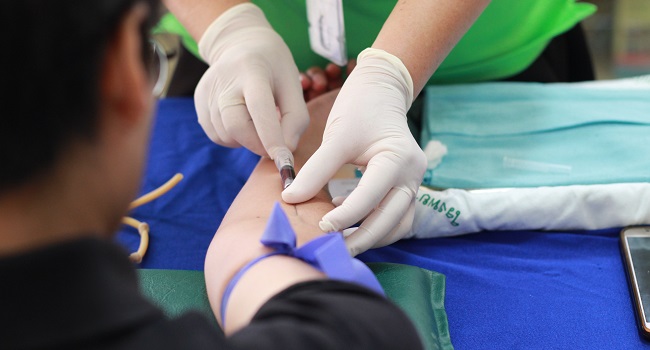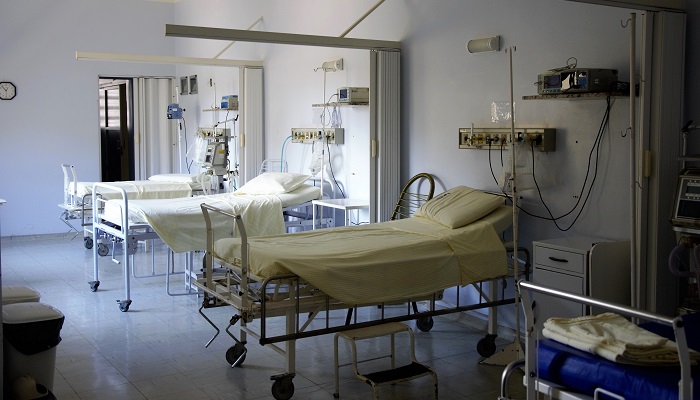The modern healthcare industry is defined by technological advances that promote patient safety and improve efficiency. Healthcare systems need to invest in the latest technologies to stay ahead of the competition, reduce costs, and provide better care for their patients. In this article, we’ll take a look at some examples of innovative technology every modern healthcare facility should consider investing in.
1. Wireless Hospital Temperature Monitoring
Wireless hospital temperature monitoring is a great way to keep up with the daily requirements of ensuring safe conditions for patients, staff, and visitors. With wireless temperature sensors strategically placed throughout the hospital, personnel can immediately be alerted when certain areas reach pre-determined thresholds that could cause potential harm. Temperature control is critical in a variety of scenarios such as operating rooms, storage units, patient rooms, and laboratories. The wireless hospital temperature monitoring system provides the added advantage of being able to observe temperature changes over time, allowing healthcare professionals to make adjustments when needed. It also eliminates the manual process of having someone manually check temperatures in various areas, saving time and money.
2. Remote Patient Monitoring
Remote patient monitoring is a technology that has been used in some form or another for decades but has seen increased recognition due to its ability to bring healthcare services into the comfort of patients’ homes. By using remote devices, such as wearables and connected devices, healthcare professionals can access vital information about their patient’s health status without having them come into the facility. This not only streamlines communication between healthcare professionals and their patients but also reduces the time spent on paperwork and allows them to focus on providing more personalized care.
3. Software for Medical Practice Management
Medical practice management software (PMP) is a great way to streamline the administrative tasks associated with running a medical facility. These types of software solutions are tailored specifically for healthcare organizations, allowing them to track patient information, manage appointments and billing processes, generate reports, and access data quickly and securely. PMP systems often come with customizable features which make them highly adaptable to any healthcare organization’s particular needs. Moreover, they can easily integrate with existing IT infrastructure, making it easy to use in any modern healthcare facility.
4. Electronic Health Records (EHR)
EHRs are probably one of the most important technological advances in modern healthcare facilities. By digitizing patient records and tracking health-related data, healthcare providers can maintain accurate and up-to-date information on their patients. This allows them to provide better patient care and reduce the risk of medical errors. EHRs are also highly customizable, allowing facilities to tailor them according to their specific needs. Furthermore, they enable secure sharing between different healthcare providers, making it easy for practitioners in different locations to access and share patient records without compromising security or privacy.
5. An IT Infrastructure to Support All Technologies
To make the most of all these technologies, healthcare facilities need an IT infrastructure that can support them. This involves having a reliable network with fast connections, robust backup systems, and secure authentication protocols. Further investments in hardware such as computers and laptops are also necessary to ensure that personnel can use the software solutions available. By investing in the right IT infrastructure, modern healthcare facilities can better efficiently integrate all their existing technology.
6. Analytics Software
Analytics software is a must-have for modern healthcare facilities as it allows them to quickly analyze patient information and generate insights that can help inform decision-making. By tracking important data points such as medical diagnoses, treatments, drug prescriptions, and more, analytics software can provide healthcare facilities with valuable insight into the health of their patients. This helps them identify trends in their patient population, spot potential problems before they arise, and make better decisions around patient care.
Why Should Healthcare Facilities Invest in Innovative Technology?
By investing in the right technologies, facilities can improve the quality of patient care and reduce administrative costs. By streamlining processes with software solutions such as remote patient monitoring systems, practice management systems, EHRs, analytics software, and IT infrastructure to support it all, modern healthcare facilities can provide better services while reducing paperwork and minimizing errors. Investing in innovative technology also allows healthcare providers to stay up-to-date on the latest developments in their field, giving them a competitive edge. In short, investing in the right technology helps ensure that modern healthcare facilities are providing the best possible care for their patients.

As we saw, there are several innovative technologies that every modern healthcare facility should invest in. By utilizing these tools, healthcare providers can provide better patient care and reduce the risk of medical errors. In addition, they can streamline their operations and become more efficient with their resources. Ultimately, investing in these technologies is a great way to ensure that your healthcare facility is on the cutting edge of innovation.



















